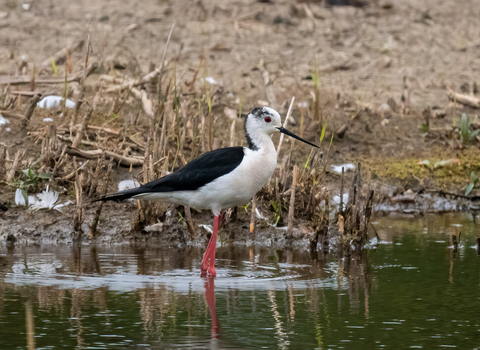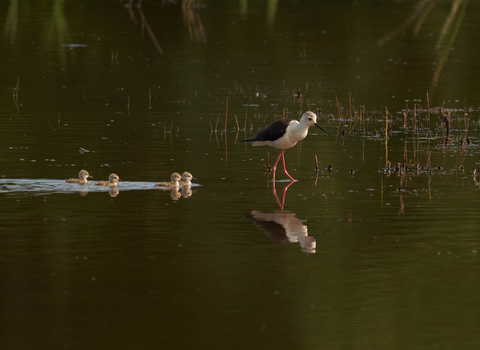
Black-winged stilt © Paul Paddock

Black-winged stilt with chicks © niallbell.com
Black-winged stilt
This elegant wading bird is a rare visitor to the UK, though occasionally one or two of pairs will nest here.
Enw gwyddonol
Himantopus himantopusPryd i'w gweld
April to AugustSpecies information
Ystadegau
Length: 38 cmWingspan: 75 cm
A very rare breeding bird in the UK. Protected under the Wildlife and Countryside Act, 1981.
Habitats
Ynghylch
The black-winged stilt is a black and white wading bird with incredibly long legs. They live in a variety of wetlands, from marshes to coastal lagoons. They wade through the water, plucking insects from the surface. Their incredibly long legs (around 60% of their height) allow them to walk through deeper water than other wading birds.Black-winged stilts are found in a wide range across Europe, Africa, Asia, and Australia. The European population is mostly migratory, flying to Africa for the winter. Although the UK is too far north to be part of their usual range, birds from southern Europe do sometimes turn up here. Occasionally, pairs arrive and nest in the UK. Nesting attempts have become more common in recent decades, which has been linked to climate change. Warmer weather in southern Europe dries out the wetlands where they would usually nest, pushing them north to find more suitable sites.
